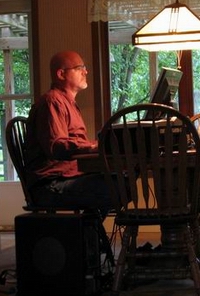Imagine My Surprise–I Am a Digital Historian
 In 2006, I began editing a collection of family letters and making them available on-line. The following year, I used this collection to help students learn history while developing digital literacy skills. I didn’t use the term “digital literacy” at the time, but that is what I was doing.
In 2006, I began editing a collection of family letters and making them available on-line. The following year, I used this collection to help students learn history while developing digital literacy skills. I didn’t use the term “digital literacy” at the time, but that is what I was doing.
In 2007, I scanned Maude Glasner’s Questions and Answers on Eugenics (1913), made it available on-line and annotated part of the text. Then, in 2009, I became the family genealogist. A year earlier, I had already built the Liberacki-Wilcox-Berg Genealogy website so that my mother could effectively share the print materials she had already collected. In October 2013, I designed an assignment that allowed students to post memorable moments concerning historical events in a blog that has a national readership.
Last week, I asked students in two of my classes to create assignments that would allow their colleagues to learn more about history while developing digital literacy skills. That evening, I did research about the digital humanities before turning my attention to the family genealogy. As I sat in my comfy chair surrounded by little dogs, I had a revelation. I know more about the digital humanities than I realized because I am a digital historian. I have been doing digital humanities even before the term became popular.
As I have been trying to come to a better understanding of the digital humanities, I proceeded on the assumption that digital humanities must be a complicated concept. Because I enjoy the genealogical research, it was as if seven years of work as a digital historian could not contribute to my understanding of the digital humanities; that I needed to do academic research so that experts could explain to me what I am already doing.
In helping students develop skills in digital literacy, we can develop assignments based on what we/they already know and are already doing; both in the classroom and in our lives.
My partner is fond of pointing out that I have the academic tendency to over think things; that I too often make life more complicated than it needs to be. I hate to admit that he is right. Academics do seem to have the propensity to avoid the obvious to go for the complicated. I trust that my students who are designing assignments combining history and digital literacy will not make the same mistake.
- –Steven L. Berg, PhD
Photo Caption: Steven L. Berg not realizing he was doing digital history in his parent’s home in 2008.
LEAVE A COMMENT